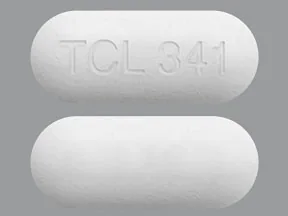Mental well-being plays a crucial role in our overall health. When we grapple with specific mental health issues, medication can play a significant role in our treatment plan.
One such medication often recommended by psychiatrists is Lexapro, also known as escitalopram. It has a track record of effectively alleviating symptoms associated with depression and anxiety. However, it’s essential to be aware of potential side effects, including the possibility of weight gain, which some people may experience while taking Lexapro or similar antidepressants.
If you’re contemplating starting Lexapro or are already using it and have observed changes in your weight, you might be concerned about Lexapro weight gain. Gaining insight into this potential side effect can help you make informed decisions about whether Lexapro is the right choice for your treatment.
Continue reading to delve deeper into the relationship between Lexapro weight gain. We will explore how much weight some people may gain, the reasons behind this phenomenon, strategies to mitigate it, and more.
- Can Lexapro Lead to Weight Gain?
- How much weight can you expect to put on when using Lexapro?
- What’s Behind Lexapro Weight Gain
- Is Lexapro Weight Gain Temporary
- How Long Does Lexapro Weight Gain Last
- How to Prevent Weight Gain While Taking Lexapro
- Discuss Lexapro’s Side Effects with Your Doctor
- Can You Reverse Weight Gain by Stopping Lexapro
- Some Questions
- Does lexapro cause weight gain?
- Will 10mg of Lexapro cause weight gain?
- Is it possible to lose weight on Lexapro?
Can Lexapro Lead to Weight Gain?
Lexapro falls into the category of antidepressant medications known as selective serotonin reuptake inhibitors (SSRIs). It’s primarily prescribed to address conditions like depression, generalized anxiety disorder (GAD), and other mood-related issues.

While it proves effective for many individuals in managing these conditions, some people do experience weight gain while taking Lexapro.
How much weight can you expect to put on when using Lexapro?
According to research, around 41% of Lexapro users might notice an increase in their body weight. It typically takes about 6 to 8 weeks for the full side effects of Lexapro to become apparent, and it’s during this period that weight fluctuations may become more noticeable.
However, it’s worth noting that the impact of Lexapro on weight gain can differ from person to person. In one study, individuals who took Lexapro for nine months saw an average weight gain of approximately 2.4 pounds.
What’s Behind Lexapro Weight Gain
There are several factors that might contribute to the weight gain some people experience while taking Lexapro. For instance, certain medications are known to boost appetite, alter metabolism, or lead to fluid retention.
Also, individuals who are feeling down or anxious may find it tough to stay active, which can gradually lead to weight gain if not addressed.
The precise reason behind why Lexapro can cause weight gain isn’t completely clear at this point. However, many experts speculate that changes in metabolism or appetite could play a part in triggering this particular side effect.
Other explanations include an increased desire for carbohydrates or heightened fat storage, possibly due to reduced physical activity stemming from the low energy levels often associated with depression or anxiety medications like Lexapro.
According to research, there are various potential reasons why someone might put on weight while taking Lexapro. Here are some of them:
- Inactivity: Individuals who lead a sedentary lifestyle or don’t engage in physical exercise may be more susceptible to weight gain when using depression or anxiety medications like Lexapro.
- Serotonin Levels: One theory suggests that Lexapro’s impact on serotonin levels could result in changes in appetite or metabolism, potentially leading to unwanted weight gain.
- Cravings: SSRIs, such as Lexapro, might trigger increased cravings for specific types of food, like carbs or sweets.
- Smoking: Some individuals who have a history of smoking might experience weight gain when they start prescription antidepressant treatment.
- Appetite Improvement: Antidepressants like Lexapro can enhance emotional well-being, leading some people to eat more due to their improved mood. Depression and anxiety can often suppress appetite, so alleviating these symptoms may increase one’s appetite.
Remember, it’s crucial to consult with your doctor before using substances like tobacco or alcohol alongside Lexapro, as these interactions can have adverse effects.
Is Lexapro Weight Gain Temporary
Weight gain is a relatively common occurrence for individuals using Lexapro. The reassuring news is that this side effect often diminishes as your body adapts to the medication, and your metabolism returns to its usual state.
How Long Does Lexapro Weight Gain Last
The duration of weight gain caused by Lexapro can vary significantly among individuals. Some may notice it right after they start taking the medication, while for others, changes in weight may become apparent after several weeks or months.
It’s possible that the more extended you use Lexapro, the more likely you are to experience some degree of weight gain.
How to Prevent Weight Gain While Taking Lexapro
If you’re concerned about the potential side effect of gaining weight while on Lexapro, there are strategies you can employ to help avoid it. Here are some tips for steering clear of weight gain when using Lexapro:
- Eat Healthy Foods: Choose foods that are good for you, like fruits, veggies, lean meats, whole grains, and low-fat dairy. These foods give your body the stuff it needs without adding extra calories or fat. Try to stay away from processed foods that have lots of sugar and bad fats because they can make you gain weight.
- Stay Active: Moving your body is super important for staying at a healthy weight. When you exercise, it helps you stay in good shape and makes you feel happy by releasing special chemicals in your brain. You don’t have to do anything super fancy – just try to play and move around for at least 30 minutes every day. You can play sports, go for a walk, do yoga, or ride your bike.
- Check Your Weight: It’s a good idea to keep an eye on how much you weigh. That way, if you notice any big changes, you can do something about it. Some people like to weigh themselves once a week, always at the same time, and wear the same kind of clothes so they get the same results each time.
To prevent weight gain while on Lexapro, consider adopting lifestyle changes and keep a close watch on your weight.
Furthermore, there are natural supplements available that have demonstrated effectiveness in alleviating symptoms related to depression. Some of these supplements work without causing noticeable Lexapro side effects like increased appetite or cravings. Don’t hesitate to discuss these options with your doctor as well.
Discuss Lexapro’s Side Effects with Your Doctor
It’s crucial to have an open conversation with your doctor about Lexapro and its potential side effects, including the likelihood of weight gain. While Lexapro can effectively treat your mental health condition, it’s important to be aware of the possible drawbacks before starting the medication.
By understanding the potential side effects of Lexapro, you can make an informed decision about whether it’s a suitable part of your treatment plan. Your doctor will provide you with insights into what you might encounter and offer guidance on managing side effects like weight gain should they arise.
Also, consult your doctor for other medical advice related to Lexapro, especially if you are pregnant or planning to become pregnant.
While Lexapro-induced weight gain is a common side effect, it doesn’t affect everyone using this medication. Various studies indicate that SSRIs like Lexapro can lead to weight gain, but the extent varies from person to person, influenced by factors such as age, lifestyle choices, diet, and activity level.
Can You Reverse Weight Gain by Stopping Lexapro
Studies on the long-term effects of antidepressants and weight gain suggest that these weight changes can persist for years, even after you’ve finished treatment. This might happen because your mood, appetite, and metabolism could continue to undergo shifts, and other factors like age, gender, or race may play a role.
So, if you’re considering discontinuing Lexapro solely to get back to your previous weight, it’s not a recommended approach, as it may not effectively reverse the weight gain.
If you find the weight gain side effect bothersome, it’s always best to have a discussion with your mental health provider and physician. They can help you explore options like changing or discontinuing your antidepressant treatment in a more informed and balanced manner.
Some Questions
Does lexapro cause weight gain?
Research has shown approximately 40% of people taking antidepressants such as Lexapro will gain 7% or more of their starting body weight. The weight gain experienced with Lexapro is a lot less than that reported with other antidepressants such as paroxetine, mirtazapine, or doxepin but more than fluoxetine.
Will 10mg of Lexapro cause weight gain?
A 2014 study found that the average weight gain for people taking Lexapro was less than 0.5%. However, a 2018 review put the average weight gain at 3.7%.
Is it possible to lose weight on Lexapro?
Weight changes can occur when taking Lexapro, but they are not usually dramatic. In some cases, weight loss may occur. A doctor may monitor a child taking this drug for reduced growth rates and insufficient weight gain.
- Creatine Weight Gain: Is It Fat, Water Retention, or Muscle?
- Can you use sucralose on a keto diet?
- Vyvanse Weight Loss: Side Effects, Dosage, and More
- Lexapro Weight Gain or Loss: Facts and Tips
- ColonBroom Reviews
- Alpilean ICE HACK Weight Loss Secret
- Alpilean Reviews (Fake or Legit)
- Turkesterone Supplement: Dosage, Cycle, Side Effects, And Results
- K3 Spark Mineral Reviews (Fake or Legit)















